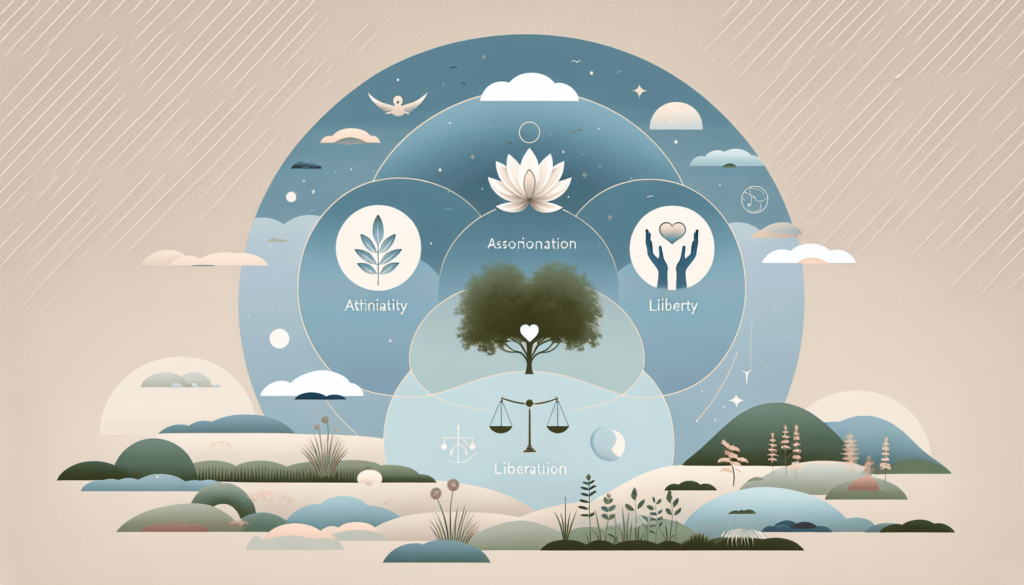
Have you ever found yourself pondering what drives our behaviors and choices? That’s a question we’ve mulled over from time to time, especially when life throws us a curveball and we’re left wondering, “Why did we react that way?” Enter the world of reality therapy! This fascinating approach to understanding human behavior is based on the idea that all our decisions stem from five basic needs. Quite intriguing, right? Let’s embark on an enlightening journey to uncover these five basic needs that form the backbone of reality therapy.
Understanding Reality Therapy
Before we dive into those five needs, let’s get on the same page about what reality therapy actually is. Reality therapy is a therapeutic approach developed by Dr. William Glasser. It’s a method focused on problem-solving and making better choices to fulfill our basic needs. Unlike some therapies that delve deep into our past, reality therapy is more about the here and now—essentially, what can we do today to improve our lives?
The Genesis of Reality Therapy
In the mid-1960s, Dr. William Glasser introduced reality therapy, which emphasizes personal responsibility and the transformation of attitudes. Glasser believed that strange behaviors often stem from unmet needs and suggested that addressing these needs could reshape one’s reality. His approach was designed so that people could take charge of their own lives rather than remain passive bystanders.
How Reality Therapy Differs from Other Therapies
Compared to Freudian psychoanalysis or other traditional therapies that look backward to untangle the roots of current issues, reality therapy is refreshingly forward-thinking. It’s about taking stock of where we are right now and how we can change our actions to better meet our needs. In a reality therapy session, the focus would be more on changing behavior rather than analyzing the origins of that behavior.
The Five Basic Needs in Reality Therapy
Right, onto the main event—the five basic needs. Glasser believed that all human behaviors are driven by an attempt to satisfy five inherent needs. We’ve all felt these needs tugging at our decisions, haven’t we? Let’s explore them!
1. Love and Belonging
If there’s one thing we often hear as a common theme in life, it’s the human need to connect. Love and belonging top the list as one of the primary needs outlined by Glasser. We all need to feel loved and to belong to a group or community. It’s about forming relationships and feeling emotionally connected with others.
The Role of Love and Belonging
Whether it’s a close-knit family, a circle of friends, or even colleagues at work, we derive strength and satisfaction from being part of a group. Think about how good it feels to be hugged by someone or to be part of a group chat with your best pals—it’s comforting. We all want to feel like we matter to someone and like we belong somewhere.
Impact on Behavior
When this need is unmet, we might find ourselves behaving in ways that aren’t typical, perhaps seeking reassurance or acting out. It can drive isolation for some, while others might overly cling to relationships that aren’t healthy for them. Understanding this need helps us re-evaluate our relationships and strive for stability in our connections.
2. Power and Achievement
Next up, we have power and achievement, which may sound a bit like something only corporate tycoons deal with, but actually, it’s a core need for us all. It encompasses our need to achieve, be recognized, and feel that we have some level of influence over our lives.
Why Power and Achievement Matter
This isn’t about being authoritarian or domineering. Instead, it’s about self-esteem, accomplishments, and experiencing a sense of competency. When we set goals and achieve them, receive praise, or influence our environment—these are moments when our need for power is being met.
When Power and Achievement are Lacking
A lack of fulfillment here can cause us to feel ineffective or overlooked, which might lead to frustration or even depression. Recognizing this need has us rethinking our life goals, suggesting we aim for attainable achievements that help boost our confidence.
3. Freedom and Independence
Ah, the sweet sound of freedom and independence, something we’ve likely all longed for at some stage in life. It’s about being able to make choices, express ourselves, and be autonomous.
The Essence of Freedom and Independence
Freedom involves having space to grow and explore. We cherish those moments when we can make a decision without constraints—maybe traveling to a new place or simply choosing our dinner menu. Freedom also lets us create uniquely as our genuine selves.
Consequences of Restricted Freedom
When this need isn’t met, we might experience frustration and restlessness. Feeling confined or overly controlled can lead us to rebel against restrictions or even make reckless decisions just to assert our freedom. It’s a need that, when met, drives our innovation and self-discovery.
4. Fun and Enjoyment
Fun and enjoyment might seem trivial, but they are core needs according to Glasser. Engaging in activities that bring joy, laughter, and relaxation is vital for maintaining a balanced life.
Why Fun is Fundamental
Remember the last time you belly-laughed with friends or got lost in a hobby you love? That’s you fulfilling your need for fun. Without it, life can feel monotonous and devoid of pleasure. It’s essential for recharging our emotional batteries and maintaining a happy, upbeat demeanor.
Dealing with a Fun Deficiency
When we neglect this need, life becomes drudgery, making us comparably robotic. People lacking fun often appear stressed or irritable. Recognizing this need helps us prioritize enjoyment, perhaps by setting aside time for hobbies or scheduling regular downtime.
5. Survival
Last but by no means least, we have survival. This one is the first most would guess—the basic need to sustain life through essentials like food, water, shelter, and safety.
The Vital Elements of Survival
Survival is about securing necessities that keep us alive. It’s about physical health and well-being, ensuring we have a secure and safe existence. Unlike the other needs, survival can be starkly immediate—we need what we need to live.
Challenges When Survival is Threatened
When survival needs aren’t met, our responses are more primal and urgent. Think of someone who panics when their job is threatened because it impacts their financial stability to buy food or pay rent. Addressing this need can stabilize other areas of life, contributing to an overall sense of security and calm.

Integrating the Five Needs into Everyday Life
Well, now that we’ve reviewed the five basic needs, how do we integrate this newfound understanding into our daily lives? It’s about becoming conscious of which needs might be unmet and finding ways to address them. Here’s a simple table illustrating how we can meet these needs:
| Need | Ways to Fulfill |
|---|---|
| Love and Belonging | Strengthening relationships, joining groups |
| Power and Achievement | Setting realistic goals, seeking feedback |
| Freedom and Independence | Exploring new interests, establishing boundaries |
| Fun and Enjoyment | Engaging in hobbies, scheduling leisure time |
| Survival | Ensuring physical safety, health, and resources |
A Reality Therapy Approach to Life
In a way, adopting reality therapy is like continuously tidying up our emotional house. By focusing on fulfilling these needs, we sidestep the chaos and turmoil that unmet needs can cause. Having a reality-based viewpoint means looking at our lives without rose-tinted glasses while focusing on what we can control.
Conclusion
So there we have it, the bedrock of reality therapy—those five essential needs that shape our actions and choices. By understanding and addressing these needs, we stand a better chance at sculpting satisfying and meaningful lives. We might not transform completely overnight, but with consistent attention to our needs, we pave the way for better well-being and fulfillment.
When we next find ourselves in a tight spot, wondering why a particular issue is causing so much distress, it may just boil down to one of these needs. Reflecting on them could guide us to an improved path forward.
Why not take a moment today to reflect on whether these needs are being met in our lives? The answers might surprise us!

